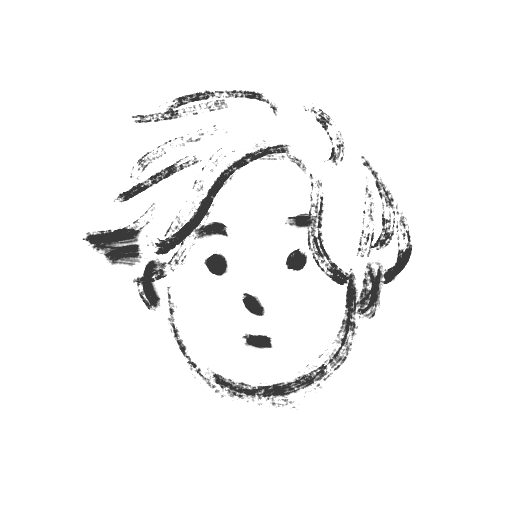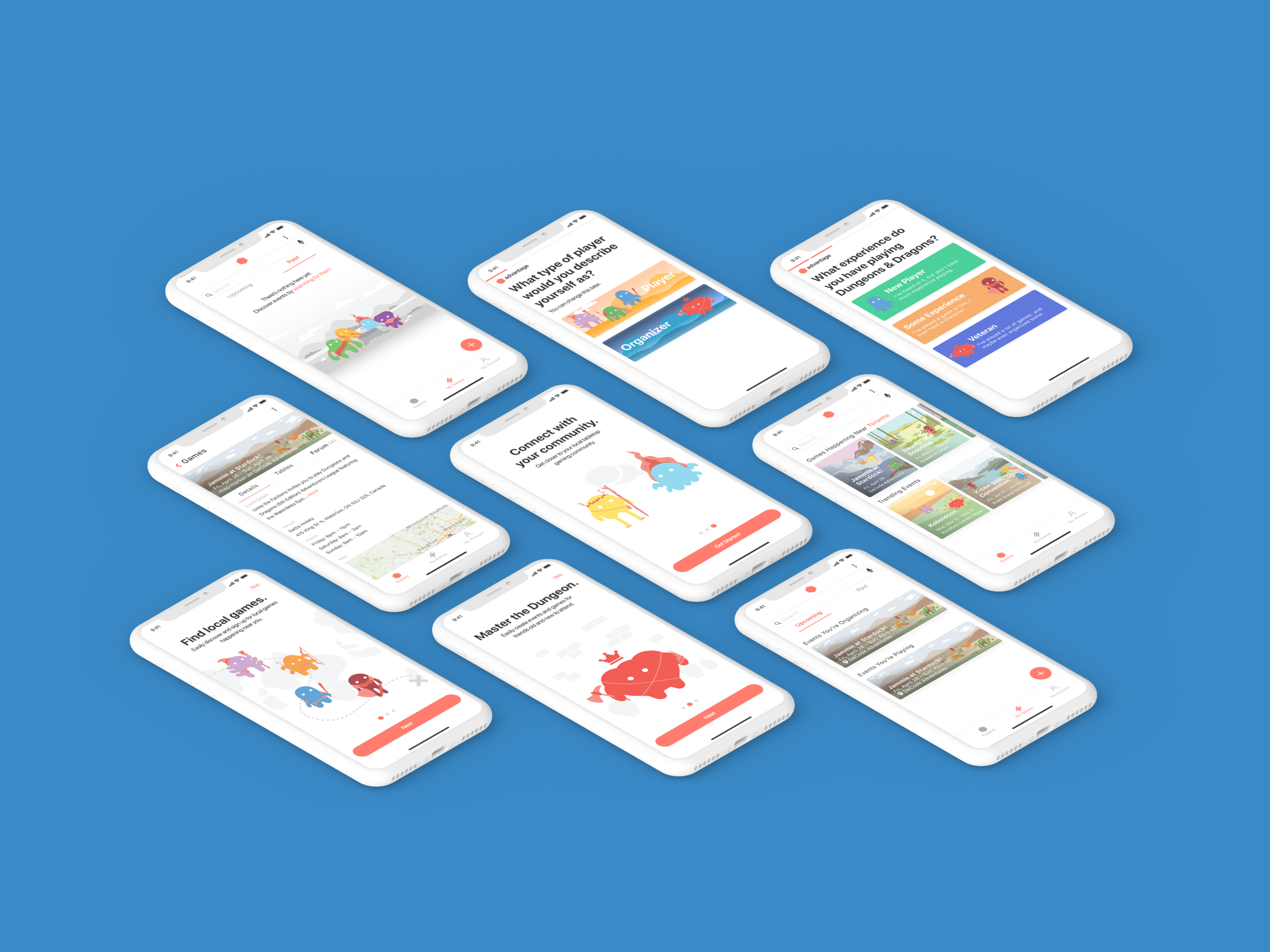
Designing a comprehensive and informative Dungeons & Dragons event management app for both veterans and newcomers alike.
Designing comprehensive and informative Dungeons & Dragons event management app for both veterans and newcomers alike.
Advantage
Designed for managing large scale events such as conventions, but also small gatherings with a focus on D&D.
Contents
Product design, user research, design thinking
Credits
Myself, Kha Van Tran, Michelle Currie
Timeline
3 months
Role
Project lead, UX/UI, user research, prototyping
The Problem
Dungeons & Dragons event management is confusing, tedious, with an aesthetic that carries a stigma.
What We Did
We talked to local D&D event organizers, conducted on-campus interviews for players and non-players to understand not only the game, but the problems that surface when trying to organize an event.
The Design Challenge
How might we facilitate a welcoming D&D experience?
Before we begin...
Dungeons & What Now?
Dungeons & Dragons is a tabletop roleplaying game. A group of friends sit at a table and pretend to be heroes in a story organized by a dungeon master (DM). The DM is the main storyteller and organizer for this game, giving the player goals and rewards to strive for.
Event planning is complicated in and of itself, but adding the specifics and nuances required to plan a Dungeons & Dragons game introduces a whole new layer of complexity to it. No solution out there is currently built to manage D&D game event management. Current tools are either too general, not offering the specific features required to plan a D&D game, too overwhelming, with complicated processes and confusing layouts, or unfriendly to new users in their complexity, not accessible for new players who want to find games who don’t necessarily know the process of signing up for a D&D night.
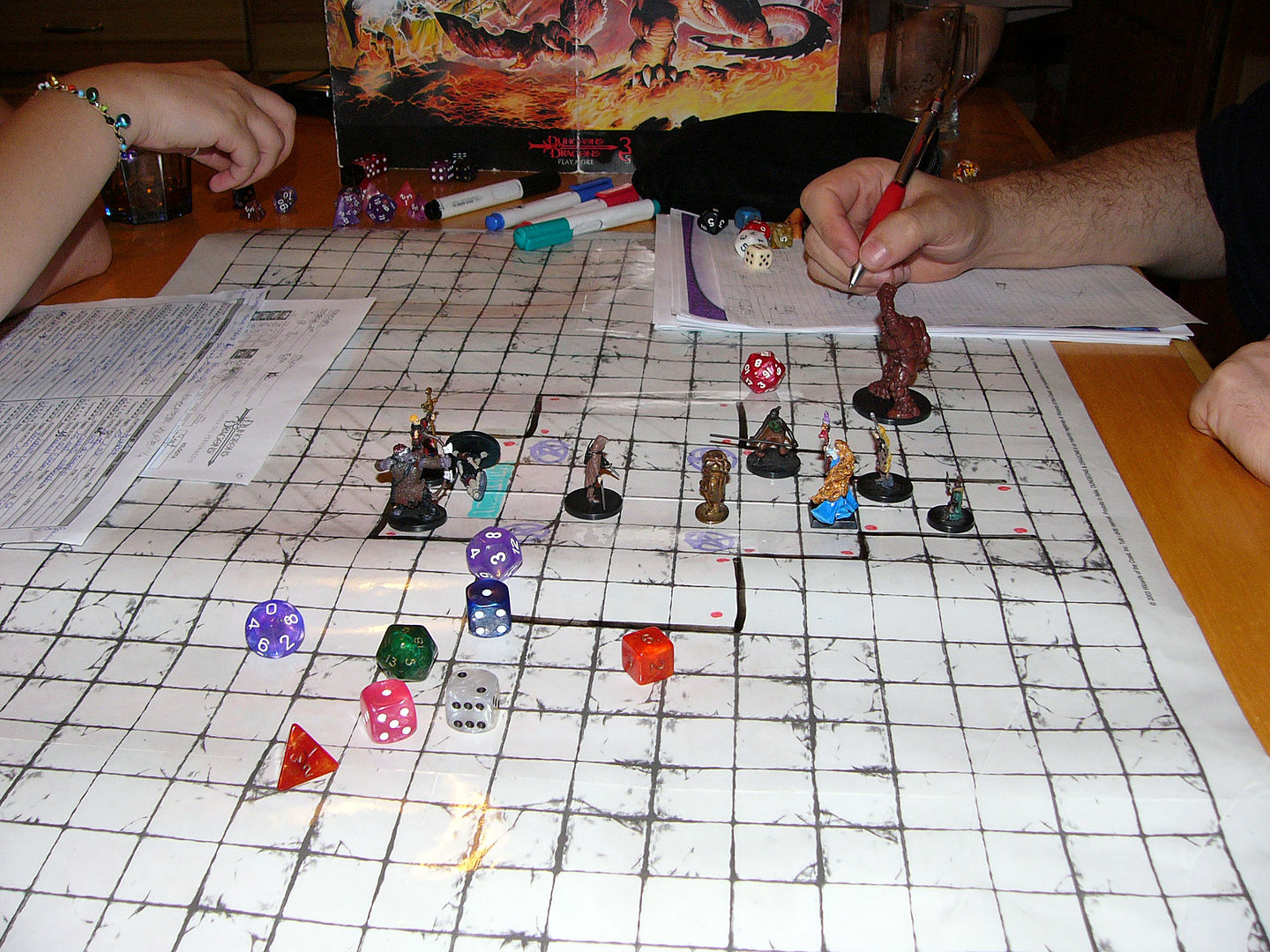
What Advantage Does
Advantage is a Dungeons & Dragons specific event planning app. Advantage aids in building a local community with simple onboarding and allowing new users to get acquainted into their local D&D community, empowering and simplifying the event creation process. It allows volunteers and organizers to feel accomplished and not overwhelmed. It allows for simple and easy to use event discovery and registration for users to easily find a game to play, no matter their schedule.
Getting an understanding
Brainstorming & Research
We started this project by familiarizing ourselves with D&D and talking with people who play the game. What we knew was surface level and in order to get to the heart of the problem we wanted to talk to not only the client but also the potential users. We did this by talking with a local D&D event organizer, as well as talking to people on-campus more familiar with the game then we were.
We wanted to have these conversations to not only get more information about our users, but to also ground ourselves with issues that real people were facing, rather than sticking with our assumptions.
With this, we compiled our research into various documents to guide us along the project:
Research
☞ PACT analysis. To understand our users.
☞ Benchmark analysis. To understand the current apps and tools, including their successes and fallbacks.
☞ MoSCoW Framework. To understand the scope of the project, and to prevent feature-creep.
Understanding the people
Personas & Archetypes
With our research, we developed personas to help us visualize and ground the problems that surfaced into people we could keep in mind when going through the project.
Using these personas along with our previous research, we identified key pain points we wanted to tackle with this project.
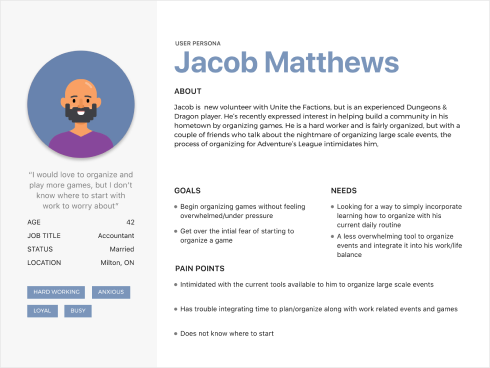
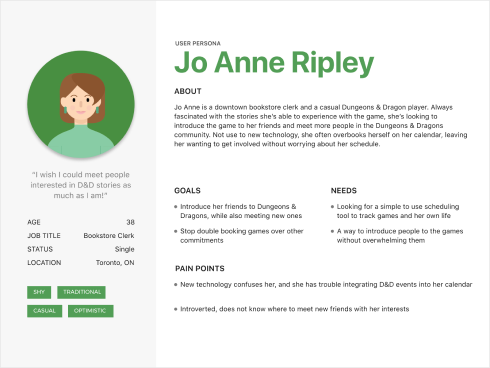
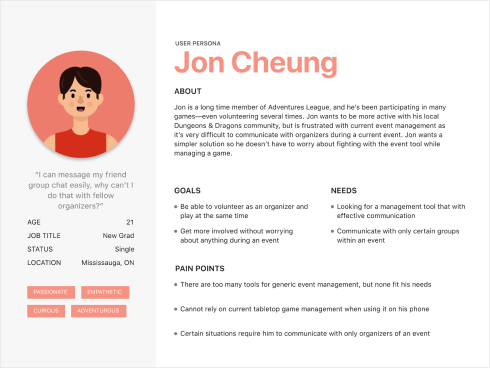
Pain Points
☞ Confusing and Tedious Process. Organizers have to go through a long, confusing, tedious process in order to create an event for players to attend.
☞ Specific Needs. Current solutions don’t have the nuances and specifics that D&D event management requires, and if they do they are laid out confusing and overwhelming.
☞ Stigma. Currently, people have a surface level idea of Dungeons & Dragons and current marketing of D&D isn’t welcoming to new users.
Solution: No More Confusion
Accessible and Informative Game Creation
Game creation and event creation is easy for organizers new and old. Saving your progress allows you to take a break, and a progressive and in-depth system allows users to get informed about each step, ensuring no confusion in the creation process.
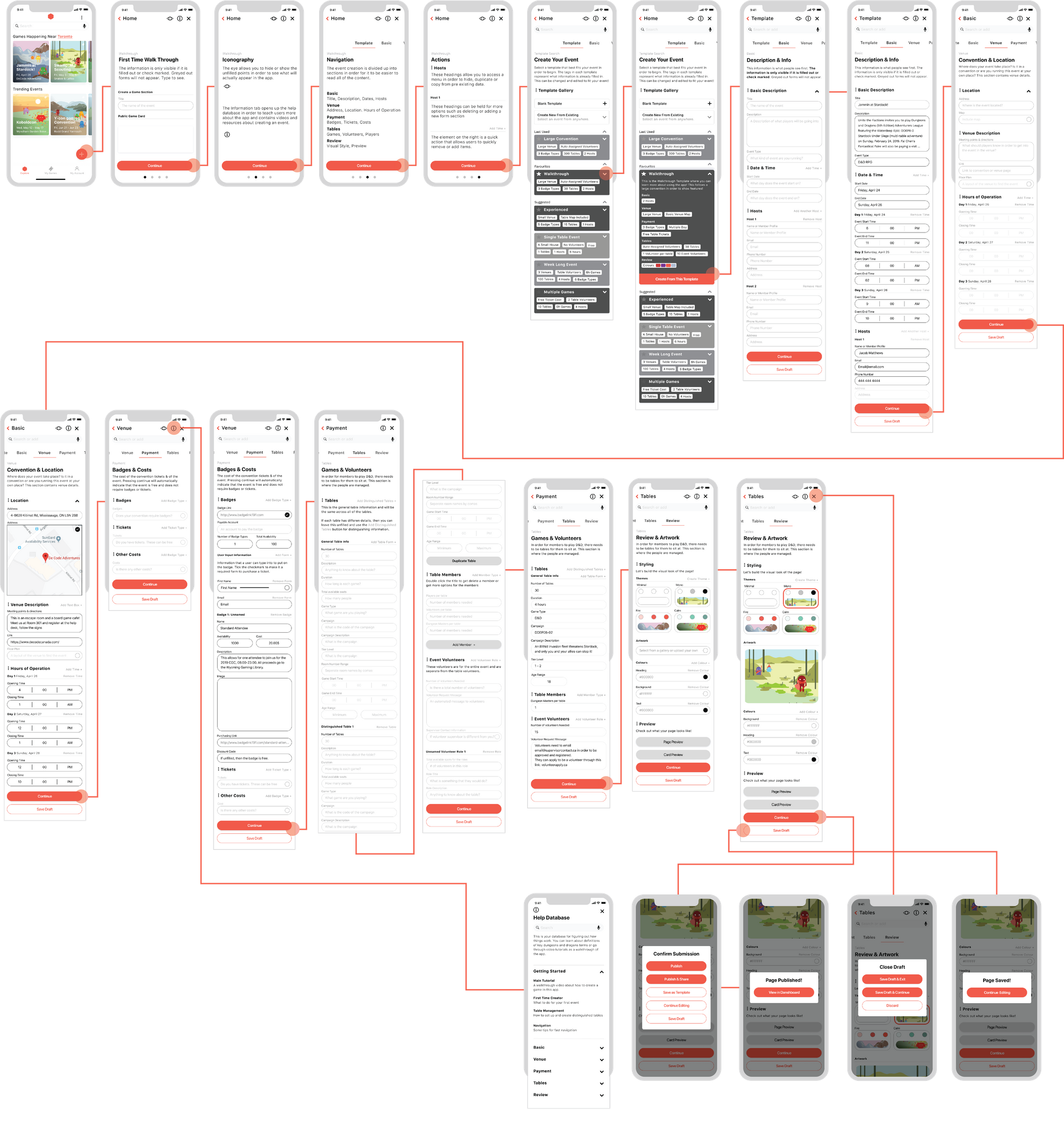
Solution: Making it D&D Specific
Approachable Event Discover & Forums
A simple interface reduces friction in finding local events and games for players to sign up and volunteer for. Forums allow for messages and important information from administrators never to get lost, with specific features for D&D events such as ticketing, player profiles, and table occupancy
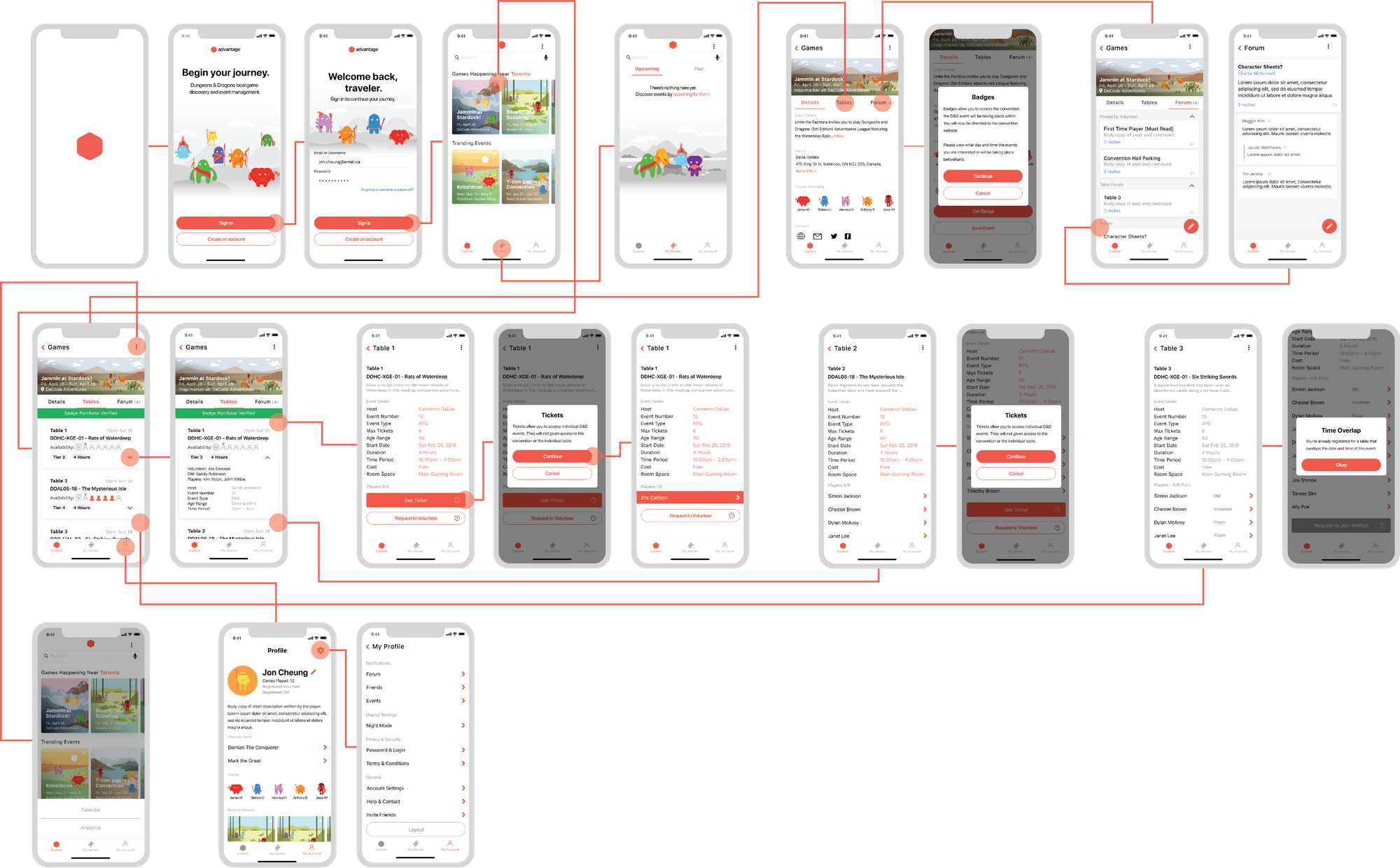
Solution: Stigma No More
Welcoming & In-Depth Onboarding... with a Fresh Brand
New players and organizers are able to sign up through an in-depth and friendly onboarding process, easing new users into the world of Dungeons & Dragons while also giving organizers the important information needed to find out attendee information and volunteer availability for games.
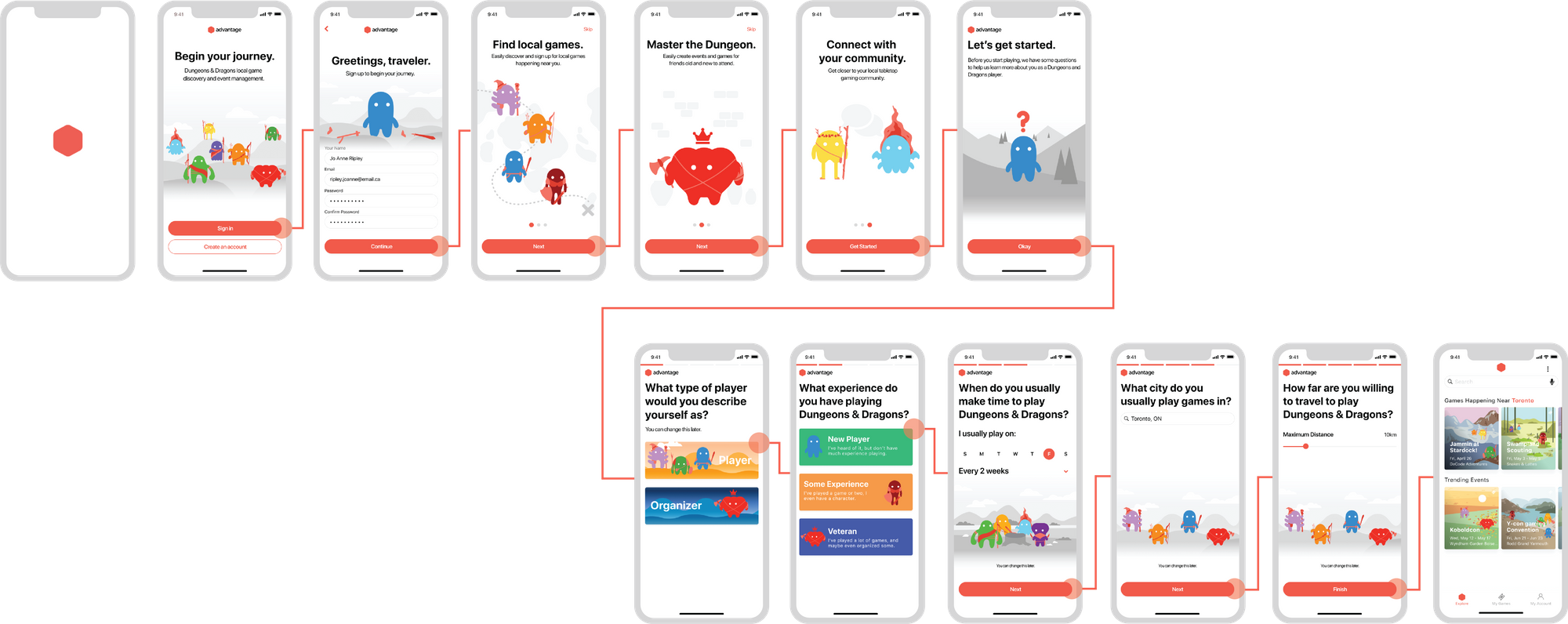
Branding
Dungeons & Dragons & You
With Advantage’s branding, we wanted to separate ourselves from the typical styling of what D&D normally looks like in order to appeal to a wider audience of new players, offering a friendlier, fun design that highlights the more fun aspect of Dungeons & Dragons instead of the super serious dungeon crawler it markets itself to be. We did this collaboratively on InVision by setting up several moodboards.
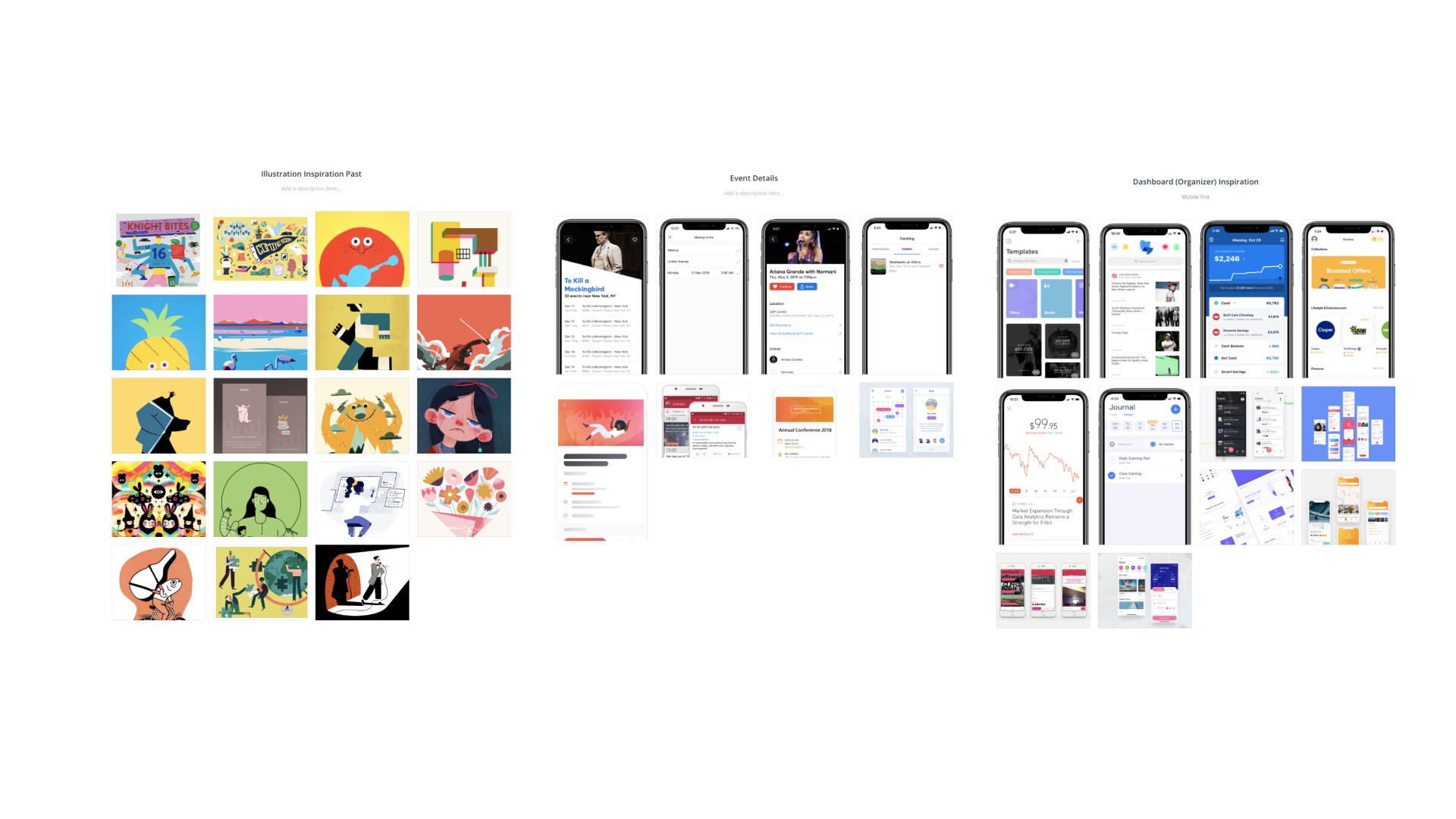
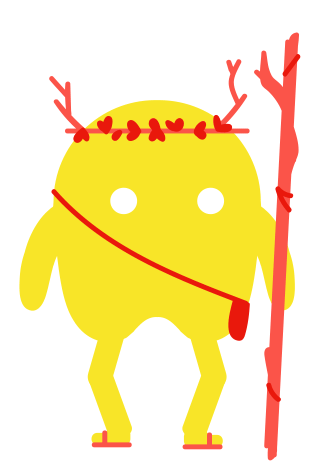
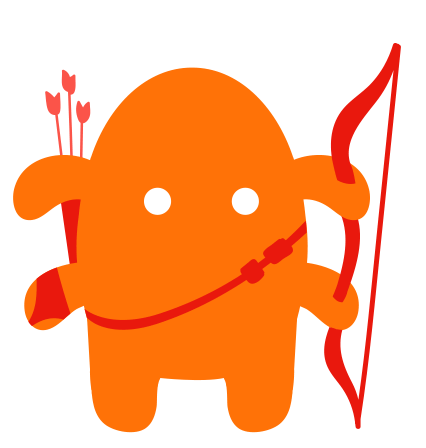
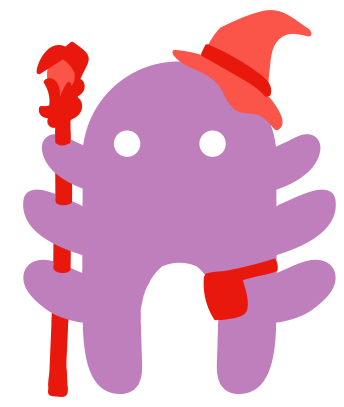
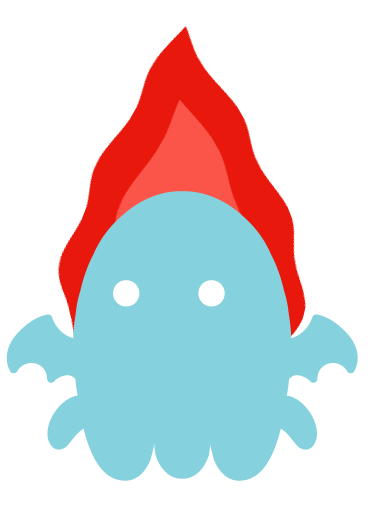
Stray Thoughts
Challenges & Pivot Points
From our user testing and our initial prototype, we found we had to pivot somewhat from the flow we already established. We had the right ideas, but from communicating with the client we were able to identify some flaws within the flow we created compared to what the client was looking for.
